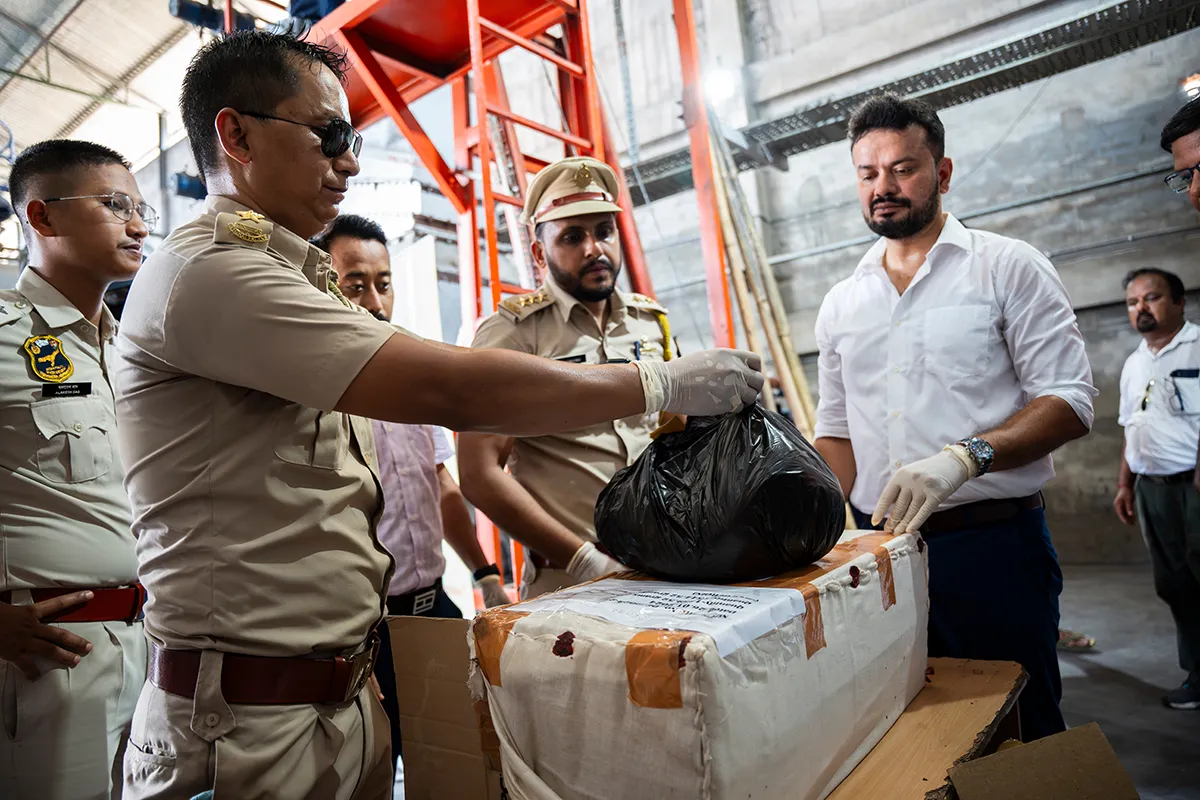This spring, voters in South Korea and the Philippines go to the polls to choose their next presidents. Both elections have the potential to change the trajectory of U.S. security cooperation with these nations. As a result, they will be closely watched by Beijing.
The first of these is the South Korean presidential election on March 9. South Korean presidents serve only a single five-year term, so the incumbent, Moon Jae-in, will not be running. Instead, the contest pits Lee Jae-myung of the incumbent Democratic Party against Yoon Suk-yeol of the conservative People Power Party. Although the contest is expected to be tight, some polls have Yoon in front, and he may have gained strength when another candidate recently dropped out of the race and threw his support behind Yoon.
Although the alliance with the U.S. is likely to remain the cornerstone of South Korea's security policy regardless of which candidate wins, the two have significant differences on other foreign policy issues. Lee seeks continuity: maintaining and upgrading ties with Washington while engaging with Pyongyang and pursuing a pragmatic approach to relations with Tokyo and Beijing. Like the incumbent Moon administration, Lee would aim to strike a balance in relations on the one hand with the South Korea's closest ally, the U.S., and on the other with its largest trade partner, China.
In contrast, Yoon has signaled his support for a harder line on North Korea, proposed a "reset" of Seoul's relations with Beijing, and called for a second U.S. Terminal High Altitude Area Defense, or THAAD, missile battery in South Korea to cope with the North Korean missile threat. Yoon has also called for South Korea to play a greater role in regional security affairs beyond the Korean Peninsula. This includes stabilizing relations with Tokyo, deepening trilateral security cooperation with the U.S. and Japan, enhancing cooperation with the West through the Five Eyes intelligence network, and potentially signing on to the Quadrilateral Security Dialogue, or Quad, between the U.S., Japan, Australia and India.
The contest in the Philippines on May 9 might also be a harbinger of change. Philippine presidents also serve a single term, but unlike the South Korean election, this contest is not expected to be close. The current frontrunner is Ferdinand Marcos, Jr., son of the former Philippine president who led the country from 1965 to 1986. Marcos has allied himself with the daughter of the incumbent president, Rodrigo Duterte - she is a candidate for vice president - and this has allowed Marcos to consolidate support in both the north and the south of the country. A mid-February poll had Marcos with a 44-point advantage over his closest competitor.
A Marcos victory would be a major shift for the Philippines in both style and substance. In contrast to Duterte, who actively sought to reorient Manila's foreign policy away from Washington's orbit, Marcos has described U.S.-Philippine ties as a "special relationship" and the defense treaty between them as "very important." Marcos has also spoken about the importance of maintaining a Philippine military presence in the disputed South China Sea in order to defend the nation's sovereignty. Furthermore, Marcos has publicly clarified that his own family's less-than-exemplary history with Washington would not affect his foreign policy. (Marcos is not permitted to travel to the U.S. due to a 2012 U.S. court judgement against his family's estate).
These statements by Marcos align well with a general warming trend in U.S.-Philippine security ties over the last six months. After a long period of uncertainty, the two sides agreed last July to extend their bilateral visiting forces agreement and conduct over 300 engagements annually. U.S. naval vessels have resumed regular port visits after a two-year absence. Manila and Washington also intend to scale up this year's iteration of Balikatan - their largest recurring combined military exercise.
Consequently, wins by Yoon in South Korea and Marcos in the Philippines have the potential to deepen U.S. security cooperation with these nations. Beginning in 2018, the U.S. suspended its longstanding practice of sending strategic bombers and carrier striker groups to the Korean Peninsula and dramatically downsized the scale and public profile of its combined military exercises with South Korea in an effort to create conditions for diplomatic negotiations with the North. The subsequent collapse of those negotiations, coupled with an impending change of government in Seoul, raises the possibility that U.S. and South Korean military planners could decide to resume some of these activities. That may become more likely should tensions between the two Koreas intensify.
In the Philippines there is also considerable room for security ties to grow. The Armed Forces of the Philippines will require significant assistance to form a credible deterrent against China in the South China Sea, as Marcos advocates, and there is much Washington could do to support these efforts. One possibility is a greater focus on maritime security and territorial defense exercises, as occurred during the Aquino administration from 2010 to 2016. Another is stepping up the frequency of U.S. military rotational deployments to the country under the bilateral Enhanced Defense Cooperation Agreement. This agreement was signed in 2014 but delayed by court challenges and the possibility that it would be terminated, along with the Visiting Forces Agreement. But in July 2021, the Visiting Forces Agreement was green-lighted again, opening the door for more Enhanced Defense Cooperation Agreement projects.
China is also watching both contests closely. Beijing has portrayed the reduced U.S. military footprint in both South Korea and the Philippines in recent years as a sign that geopolitical developments in the Indo-Pacific were trending in its direction. Consequently, China is certain to be displeased by increased U.S. military presence in either nation. Furthermore, Beijing is likely to perceive any efforts by South Korea to strengthen trilateral security cooperation with the U.S. and Japan, sign on to the Quad, or accept a new THAAD deployment on its soil as a sign that Seoul is aligning more closely with Washington - to Beijing's detriment. In the Philippines, Beijing is likely to view any U.S. effort to strengthen the capabilities of the Armed Forces of the Philippines as a challenge Beijing's sovereignty claims in the South China Sea. How Beijing responds to these developments, should they occur, will shape the security environment in the Indo-Pacific in the coming years.
For the U.S., however, both elections are timely, as it begins to set in motion a new strategy for the Indo-Pacific. The strategy, released by the White House last month, characterizes the network of U.S. security alliances and partnerships in the region as Washington's "single greatest asymmetric strength" in the Indo-Pacific. The document highlights Washington's intention to prioritize and modernize these alliances and deepen interoperability with partner nations in defense of shared interests in the region. Consequently, signs that the new governments in Seoul and Manila are prepared to deepen security cooperation with the U.S. and its allies and play a greater role in regional security affairs are in line with U.S. strategic objectives for the region and likely to be welcomed by Washington.



